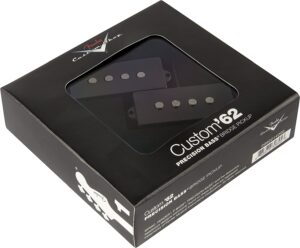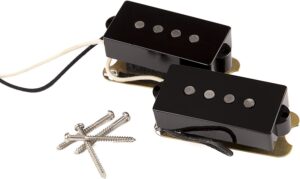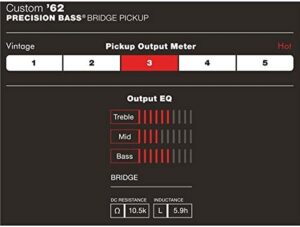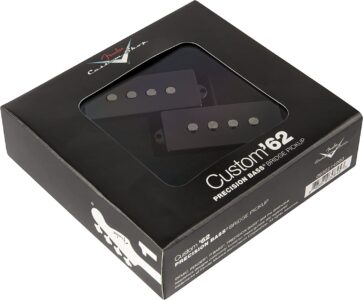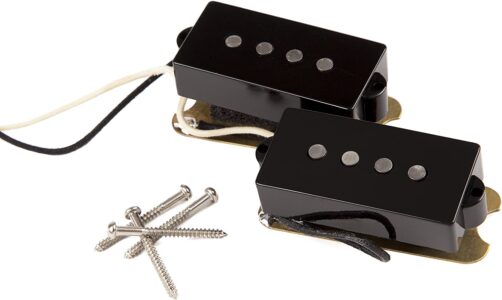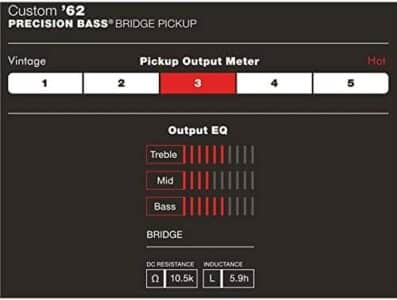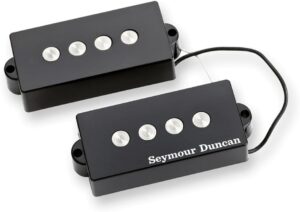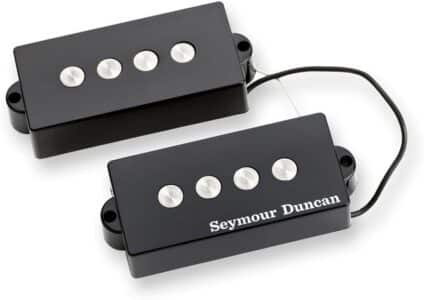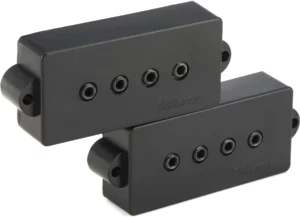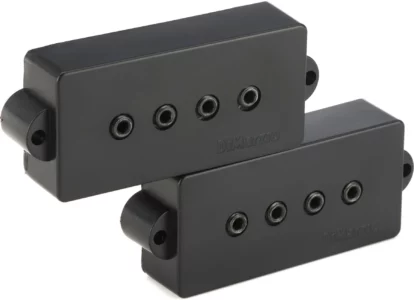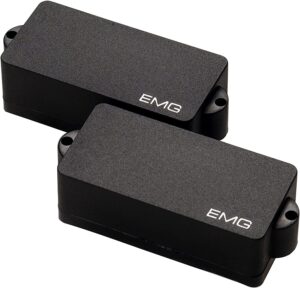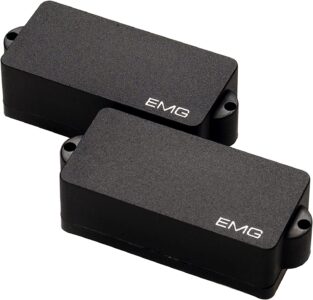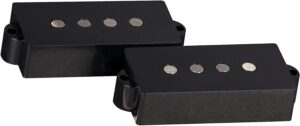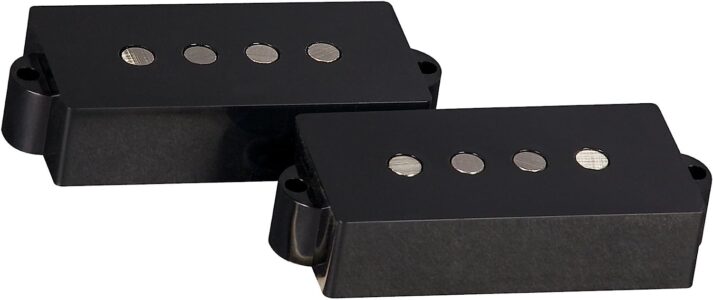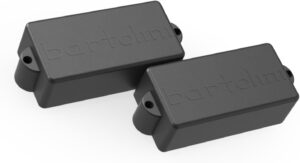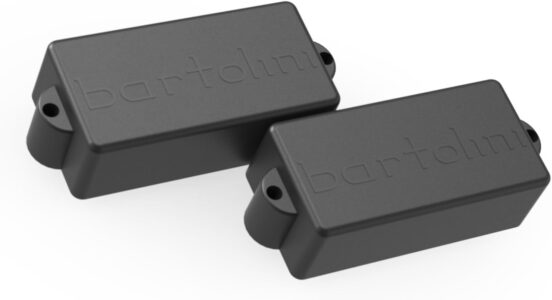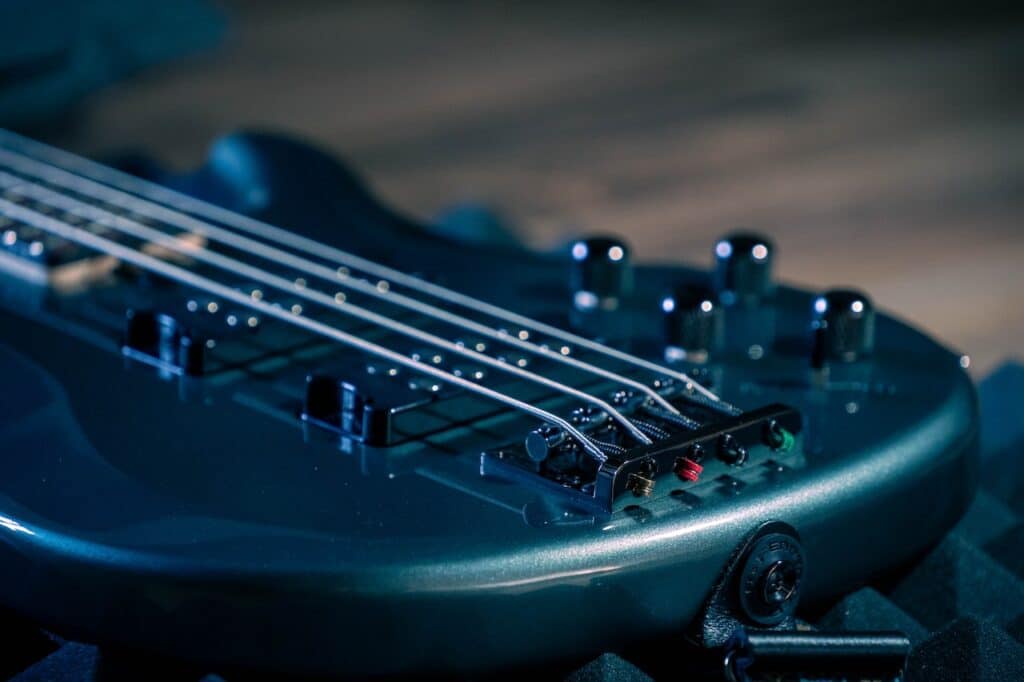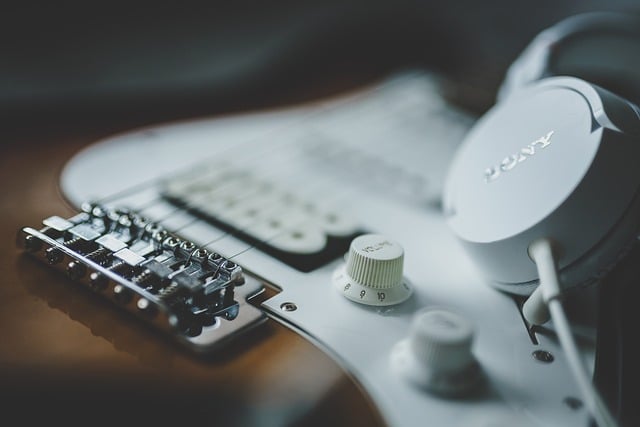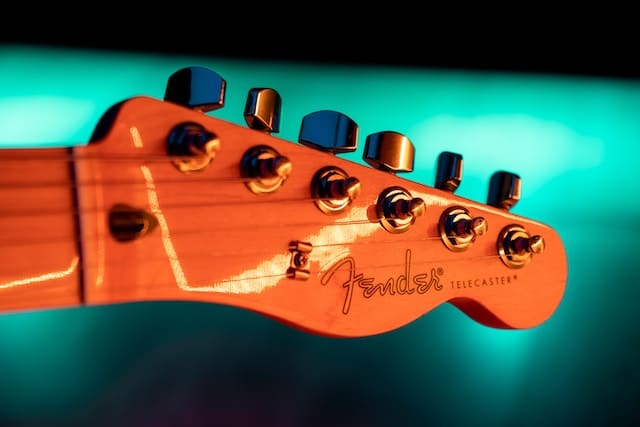Understanding Pickup Types: Active vs. Passive
Basics of Pickups: Pickups are crucial in how your bass sounds. They translate the strings’ vibration into an electrical signal, which is then sent to an amplifier and converted into sound. The type of pickup you choose can greatly affect the overall tone of your bass.
Active Pickups: Active pickups, such as the EMG P Active P-Bass Pickup, come with an onboard battery-powered preamp. This preamp amplifies the signal right at the source, ensuring a louder output and higher headroom. Active pickups offer more control over your tone, often including EQ adjustments for bass, mid, and treble frequencies. This is particularly beneficial for bassists who play in various genres and must switch their tone on the fly. However, active pickups require a power source, usually a 9V battery, which can be seen as a disadvantage since you’ll need to replace or recharge it occasionally.
Passive Pickups: Passive pickups, on the other hand, are the traditional type of pickup and are found on many classic models, including the Fender Custom Shop ’62 P Bass Pickups, Seymour Duncan SPB-3 Quarter Pound, DiMarzio DP122 Model P Pickup, Aguilar AG 4P-60, and Bartolini 8S. They provide a more organic, warm, and vintage tone and do not require a battery to operate. The tonal coloration of passive pickups comes from the interaction between the pickup and the tone and volume pots. Conversely, passive pickups offer less control over your tone and can be prone to signal loss or hum in certain situations.
Tonal Characteristics and Genres
The genre of music you play and the tone you’re after playing significant roles in determining the best P-bass pickup for you. Some pickups are versatile and can handle various genres, while others are more specialized.
For instance, if you play rock, punk, or other genres that require a punchy and high-output tone, the Seymour Duncan SPB-3 Quarter Pound is a fantastic option. It’s designed for high output with large 1/4″ wide pole pieces for more aggressive, powerful sound.
On the other hand, if you’re more into blues, jazz, or classic rock and prefer a warm, vintage tone, the Aguilar AG 4P-60 could be a better fit. This pickup faithfully reproduces the vintage 1960s precision bass tone, known for its warmth and midrange punch.
Budget and Value for Money
As with most musical equipment, P-bass pickups come in a wide range of prices. It’s essential to establish a budget before you start shopping around. However, bear in mind that a pickup’s cost does not always indicate its quality.
While it’s true that more expensive pickups often offer superior build quality, tonal versatility, and longevity, this doesn’t mean that budget options can’t deliver great sound. Therefore, it’s crucial to ensure you’re getting value for your money, regardless of your spending. Look at the pickup’s features, build quality, and user reviews to determine if it’s worth its price tag.
Brand Reputation and Reviews
The brand of pickup you choose can impact its reliability, durability, and sound. Well-established companies like Fender, Seymour Duncan, DiMarzio, and EMG have a reputation for producing high-quality, reliable pickups. They also offer good customer support and are likelier to stand by their products.
However, brand alone shouldn’t be the only factor in your decision. It’s also essential to read reviews from other users. They can provide valuable insight into the product’s real-world performance, build quality, and potential issues.
Installation and Compatibility
Finally, consider the installation process and the compatibility of the pickup with your bass guitar. Most P-bass pickups are designed to fit standard Precision Bass models, but if you have a unique or custom bass, you’ll need to ensure the pickup will fit.
Some pickups, like the Fender Custom Shop ’62, come with mounting screws and other installation accessories, making the process easier. However, other models might require you to purchase these items separately. Furthermore, the installation process for active pickups can be more complex due to the addition of a battery compartment and may require professional assistance if you’re uncomfortable doing it yourself.
Ultimately, the best P-bass pickup is one that meets your personal needs and preferences. By considering these aspects, you’ll be better equipped to make an informed decision and find a pickup that enhances your bass playing experience.







